The representatives of the coalition Amizero y’Abarundi (FNL fraction) met on Wednesday 12 September. The item on the agenda was the creation of a political party.
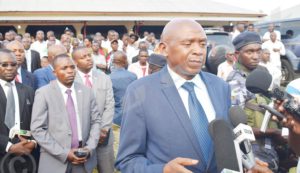
The leaders of FNL Amizero y’Abarundi
The boss of the second largest political force in the country has a great challenge: to have a political party. This Wednesday, more than 500 coalition leaders from all over the country gathered in Bujumbura. They were all enthusiastic.
It is an important step in the creation of a party. The law governing political parties rules among other things on the production of a report sanctioning the constituent meeting of this party. Agathon Rwasa speaks about historical responsibility. “Burundians aspire to good governance”.
He and his friends were successful. At the end of the meeting, the choice of the name was made known to the public. This is the National Front for Liberty Amizero y’Abarundi, FNL Amizero y’Abarundi.
The name is significant. The former leader of Palipehutu FNL rebel movement, Agathon Rwasa, wants to keep the acronyms that embody several years of rebel and political struggle.
There is a risk that the boss of the officially recognized FNL party agrees with this name. Jacques Bigirimana has always raised the voice when it comes to Agathon Rwasa . He does not accept that “FNL” name be attributed to those who remained faithful to the former boss of the party. He wants to keep this name for him at all costs.
It remains to be seen whether the subtlety between the National Liberation Forces chaired today by Jacques Bigirimana different from that of the new FNL Amizero y’Abarundi will be accepted.
The great unknown of the equation facing the leaders of FNL Amizero y’Abarundi is getting the approval of the Ministry of the Interior, manager of political parties. In the ruling party, Agathon Rwasa is considered as “someone to follow closely, almost the only one from whom the danger can come.”
It must be said, the new Constitution has shattered the political landscape of Burundi especially the destiny of the independents and coalitions. For example, Article 86 of the Constitution stipulates that no coalition of independents may be authorized in elections.
The coalition of independents Amizero y’Abarundi has long decried this provision: “It’s no doubt a way of the power in place to end this coalition.”
The 2020 elections are fast approaching and there is a need to adapt to constitutional change. As they do not want the independents’ coalition anymore, let’s find another alternative. The only possibility offered by the new Constitution is the creation of a political party. “They know we are strong, the proof is the results of the elections of 2015. In a context of crisis and boycott, we created the surprise, Agathon Rwasa coming second with 18.99% in the presidential election, far ahead Gérard Nduwayo of UPRONA party who got 1.36%, “said a member of this coalition.
In addition, supporters of Agathon Rwasa have repeatedly denounced acts of intimidation and arbitrary arrests. Several UN reports and human rights organizations report political intolerance mainly towards the militants of Amizero y’abarundi coalition. The administration has always accused the coalition of acting as a political party without being recognized by law.
It is therefore difficult to know the choice that Bujumbura will make between not allowing the approval of the party FNL Amizero y’Abarundi and taking the risk of being accused of lack of fair play or else agree to compete with this party in the 2020 elections.
Some observers fear that Bujumbura will drag its feet in authorizing this new political party.
In this regard, Agathon Rwasa indicates that Bujumbura has an interest in seeing that the political climate is good, that the political environment is open to many more people instead of continuing to obstruct it. “The Ministry of the Interior should help Burundians improve the political situation.”
The fate of the other entity of Amizero y’Abarundi coalition
Amizero y’Abarundi coalition was created by independents from Agathon Rwasa’s supporters and those from UPRONA with leaders such as Evariste Ngayimpenda and Tatien Sibomana.
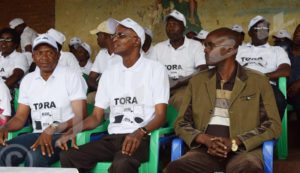
The bosses of the coalition Amizero y’Abarundi in a referendum meeting
The coalition has surprised many by bringing together people from Hutu and Tutsi ethnic groups.
It was a symbol of solidarity and reconciliation. The leaders of this coalition have fought campaign for No to the revision of the Constitution hand in hand.
Now that the new constitution prohibits the coalition of independents, things must change. Agathon Rwasa took the lead by launching the process of creating his party. Nevertheless, it does not exclude the possibility of forming a coalition in the next elections. “The spirit of the coalition remains. We encourage others to organize themselves according to the law so that we can work as a coalition when the time comes.”
In an interview, Tatien Sibomana recalled that Amizero y’Abarundi coalition was not a fusion but a coalition of two different entities. Amizero y’Abarundi-UPRONA has to find its own identity: “We will do everything to recover the legality and internal legitimacy of UPRONA party. This involves the implementation of the Supreme Court’s decision and the establishment of a central committee. ”
Tatien Sibomana says the goal of the coalition with the new FNL Amizero y’Abarundi has not changed much. “As Agathon Rwasa said, the idea of a coalition is still relevant.”
Written by Agnès Ndirubusa and translated by Pierre Emmanuel Ngendakumana

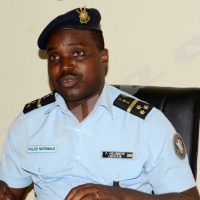
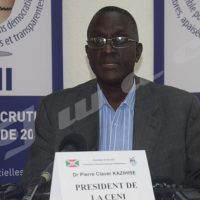
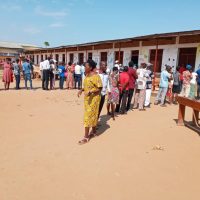
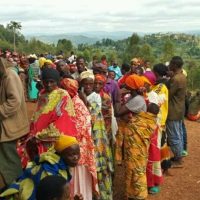
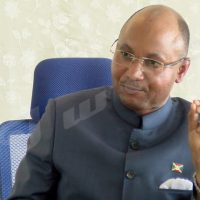













 IWACU Open Data
IWACU Open Data

